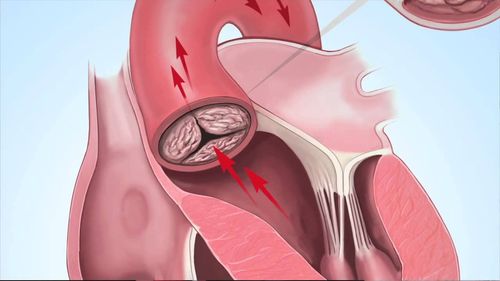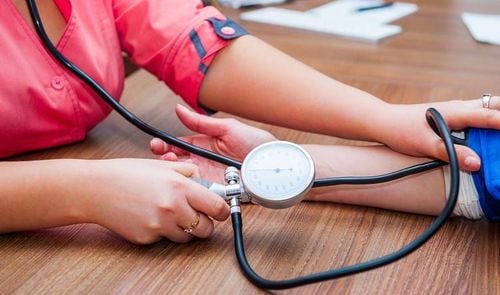This article is professionally consulted by Dr. Pham Van Hung, MSc, MD., an Interventional Cardiologist - Department of Examination & Internal Medicine -Vinmec Da Nang International General Hospital.
Patients with myocardial infarction can recover and reduce the risk of recurrence through a scientific and sensible diet. So, what should people with myocardial infarction eat, and which foods are best suited for managing this serious disease?
1. Recommended Dietary Guidelines for People with Myocardial Infarction
Here are 9 essential tips from cardiologist Pham Van Hung for patients and their families to establish a scientific and appropriate diet:
1.1. Eat Plenty of Vegetables, Fruits, Whole Grains, and Legumes
Plant-based foods are an excellent choice for everyone, especially those with heart issues. These foods are typically low in calories and rich in fiber, making them suitable for delicious preparations like salads, side dishes, or appetizers. Individuals with myocardial infarction must minimize the use of fats, such as oils or cheese, when preparing these meals.
1.2. Use Fats Selectively
Not all fats are detrimental to health. Here are some important points regarding fat consumption for those with myocardial infarction:
- Limit saturated fats (fats from animal sources).
- Avoid artificial trans fats. In the ingredients list of cooking oil, look for "partially hydrogenated" to identify trans fats.
- When cooking with oils, prioritize those high in unsaturated fats, such as olive oil, peanut oil, soybean oil, and sunflower oil.
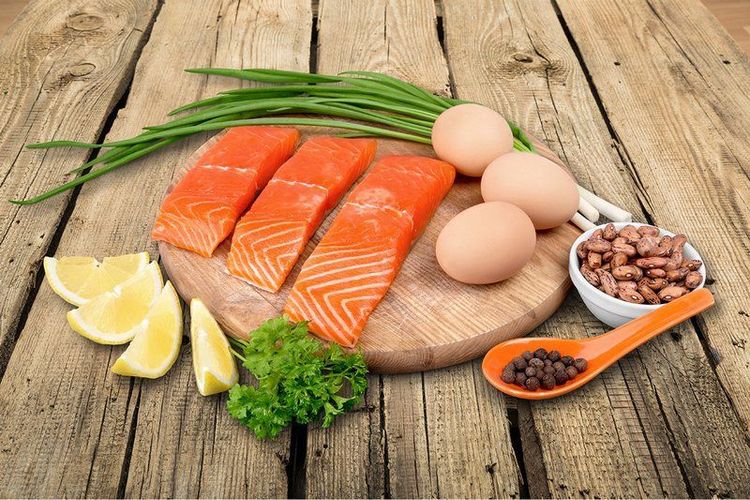
1.3. Diversify Protein Sources
Balancing your meals with lean meats, fish, and plant-based proteins is one of the best recommendations for those recovering from a myocardial infarction.
1.4. Limit Cholesterol Intake
Cholesterol is present in red meats and high-fat dairy products. These foods can elevate blood cholesterol levels—especially in individuals at higher risk, such as those with dyslipidemia, diabetes, or cardiovascular disease.
1.5. Choose Healthy Carbohydrates
Incorporate foods like brown rice, oatmeal, and sweet potatoes in your diet, as they are high in fiber and help control blood sugar levels. Avoid foods high in sugar, as they can lead to rapid blood sugar spikes, increasing the risk of cardiovascular diseases.
1.6. Eat Regularly
Eating at regular intervals can help those with myocardial infarction manage blood sugar levels, burn fat more efficiently, and maintain moderate cholesterol levels.
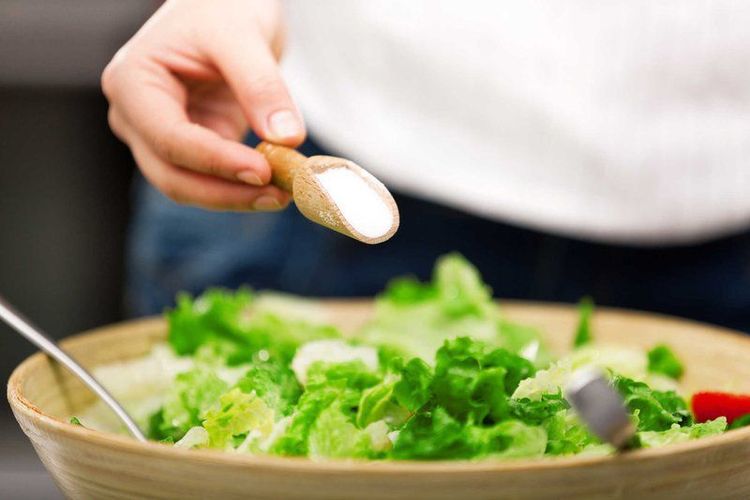
1.7. Opt for a Low-Salt Diet
While salt is a common ingredient in meals, excessive consumption can harm cardiovascular health and blood pressure.
According to nutrition experts at Vinmec, for healthy individuals without hypertension or obesity, the recommended salt intake is 6-8 grams per day (including salt in table salt, fish sauce, seasoning,...). For patients recovering from myocardial infarction or after stent placement, daily salt intake should not exceed 5 grams. Instead of salt, consider using herbs and natural spices to enhance the flavor of your dishes.
1.8. Myocardial Infarction Patients Should Stay Hydrated
Drinking enough water daily helps maintain energy levels, supports overall health, and prevents various diseases. For most individuals, 2 liters of water per day is sufficient to support both physical and mental activities, unless otherwise advised by a doctor to limit fluid intake. It's also vital to pay attention to water quality. Good options include mineral water, boiled water, and ionized water.
1.9. Adjust Energy Levels in Each Meal
Different meals provide varying energy levels. For individuals with myocardial infarction, it is essential to calculate and adjust daily energy intake to plan each meal appropriately.
2. Foods for People with Myocardial Infarction

A well-balanced daily menu is crucial for cardiovascular health and can significantly impact the condition of the disease. What foods should patients with myocardial infarction eat? Let's review with Vinmec the following 15 "golden foods" to protect heart health:
- Dark green vegetables (spinach, kale…): These are rich in vitamin K and nitrates, which help lower blood pressure and improve vascular function.
- Whole grains (wheat, brown rice, oats, barley, buckwheat…): These are excellent sources of fiber that help reduce bad cholesterol and stabilize systolic blood pressure.
- Berries (strawberries, blueberries, raspberries): Packed with antioxidants, these fruits help protect the body and combat stress and inflammation.
- Avocado: High in healthy fats and potassium, avocados lower cholesterol, blood pressure, and the risk of metabolic syndrome—a significant risk factor for cardiovascular disease and diabetes.
- Fatty fish (salmon, mackerel, sardines, tuna…): Rich in omega-3 fatty acids, these fish help prevent cardiovascular events, including strokes and myocardial infarctions.
- Walnuts: These nuts are rich in fiber and essential minerals like magnesium, copper, and manganese, which help reduce bad cholesterol.
- Beans: Beneficial for digestion, beans help lower cholesterol and triglycerides.
Dark chocolate: High in flavonoids, dark chocolate is an important antioxidant that helps prevent atherosclerosis and coronary artery disease. - Tomatoes: Rich in lycopene, tomatoes increase good cholesterol and reduce cardiovascular risks while supporting cancer prevention.
- Almonds: These nuts are high in fiber, vitamins, and minerals, helping to reduce atherosclerosis and control belly fat.
- Seeds (chia seeds, flax seeds…): Rich in fiber and omega-3, these seeds improve cardiovascular health, reduce inflammation, and stabilize blood pressure.
- Garlic: Garlic inhibits blood clot formation, which is critically important in preventing strokes.
- Olive Oil: Consuming about 2 tablespoons of olive oil daily may reduce the risk of cardiovascular disease.
- Soybeans: These contain significant amounts of isoflavones, which help lower bad cholesterol and improve cardiovascular health.
- Green Tea (or matcha): Rich in polyphenols and catechins, green tea helps reduce cholesterol, triglycerides, and stabilizes blood pressure.
In addition to maintaining a balanced diet, individuals with myocardial infarction should follow other important measures for effective treatment. According to cardiologist Pham Van Hung, patients should exercise regularly, adopt healthy habits, and eliminate harmful behaviors such as smoking and excessive alcohol consumption. It's also essential to monitor health and undergo regular check-ups, taking prescribed medications to optimize treatment and reduce the risk of heart failure after myocardial infarction.
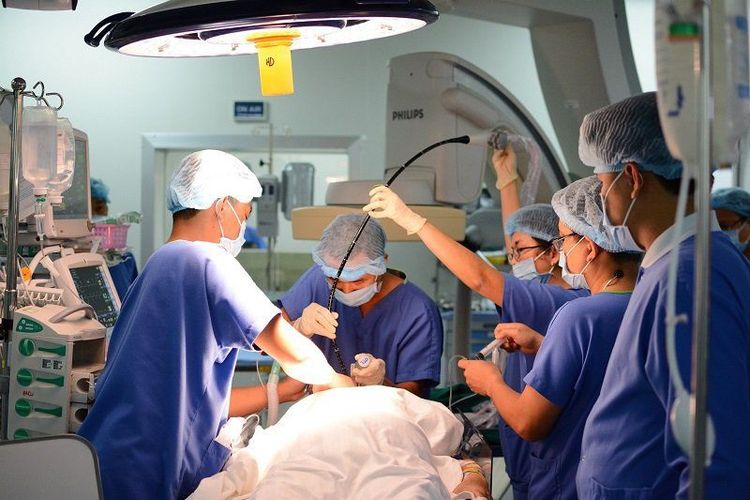
In conjunction with diet, monitoring health and performing regular check-ups with the physians are vital. This is the most effective approach to preventing the risk of heart failure after myocardial infarction.
Together with Vinmec, protect yourself and your family from the risk of cardiovascular complications.
To arrange an appointment, please call HOTLINE or make your reservation directly HERE. You may also download the MyVinmec app to schedule appointments faster and manage your reservations more conveniently.


